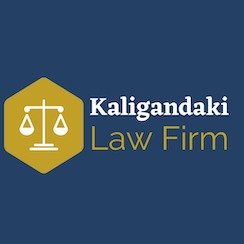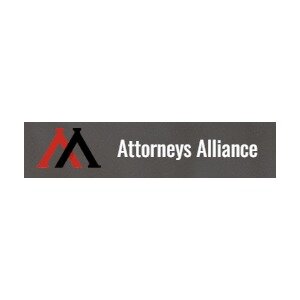Best State, Local, and Municipal Law Lawyers in Kathmandu
Share your needs with us, get contacted by law firms.
Free. Takes 2 min.
List of the best lawyers in Kathmandu, Nepal
About State, Local, and Municipal Law in Kathmandu, Nepal
State, Local, and Municipal Law in Kathmandu, Nepal, focuses on the governance structures, regulations, and legal norms that apply within the capital city and its surrounding areas. These laws are instrumental in organizing public administration, managing resources, and providing services at a local level. With Kathmandu being the largest metropolitan city in Nepal, its municipal laws cover a wide array of functions including urban planning, infrastructure development, waste management, and the regulation of local businesses. Recent efforts in legislative reform aim to decentralize governance and enhance the autonomy of local bodies, enabling them to respond more effectively to the needs of the local population.
Why You May Need a Lawyer
There are several situations where individuals or businesses may require legal assistance regarding State, Local, and Municipal Law in Kathmandu:
- Property and Land Use: Navigating zoning laws, land disputes, permits, and property taxation.
- Business Regulations: Understanding and complying with local business licensing and regulatory requirements.
- Disputes with Local Authorities: Addressing issues related to municipal services or decisions made by local authorities.
- Contractual Issues: Legal interpretation and enforcement of contracts involving local entities or within the jurisdiction.
- Municipal Services: Legal counseling regarding utility services, housing, and public transportation regulations.
- Civil Rights: Ensuring compliance with local policies on discrimination or human rights.
Engaging with an experienced lawyer can be crucial to navigate these complex legal areas effectively.
Local Laws Overview
The legal structure in Kathmandu aligns with the overarching laws of Nepal while accommodating local intricacies. Here are key aspects:
- Municipal Governance: Governed by the Local Government Operation Act, municipalities have power over local fiscal policies, urban planning, and infrastructure development.
- Revenue Collection: Local bodies have authority to impose taxes, fees, and charges on properties, vehicles, and businesses within their jurisdiction.
- Environmental Regulations: Laws addressing waste management, pollution control, and conservation of natural resources.
- Public Safety and Welfare: Regulations to ensure public health, safety, and order, including building codes and anti-encroachment laws.
Frequently Asked Questions
1. What constitutes municipal law in Kathmandu?
Municipal law in Kathmandu includes regulations and legal standards set by local bodies to govern aspects like taxation, urban development, and local business operations.
2. How can I file a complaint against a local authority?
Complaints against local authorities can be filed through the respective municipal office or through judicial avenues if required.
3. Are there legal requirements for starting a business in Kathmandu?
Yes, businesses need appropriate licenses, must adhere to zoning laws, and comply with local taxes and safety regulations.
4. How are land disputes resolved?
Land disputes can often be complex and are usually resolved through mediation, arbitration, or litigation if necessary.
5. What if I receive a property tax dispute notice?
If you receive a property tax dispute notice, it is advisable to review it with a lawyer who can provide guidance based on local laws.
6. What are my rights regarding municipal services?
Citizens have the right to receive essential services such as water, electricity, sanitation, and must report any discrepancies to the municipal office.
7. Can local laws override national laws?
No, local laws must align and comply with national laws; however, they can address more specific local issues.
8. Do I need permission to renovate my house?
Yes, permits are usually required from the municipal authority before undergoing major renovations or construction.
9. How do I access public records or information from the municipality?
Public records can be accessed through appropriate requests made at municipal offices, sometimes involving a formal application process.
10. What steps can be taken if a neighbor violates zoning laws?
Violations should be reported to municipal authorities who will carry out an investigation and enforce compliance.
Additional Resources
For further support, you can reach out to relevant bodies and resources such as:
- Ministry of Federal Affairs and Local Development: Governs local governance policies and initiatives.
- Kathmandu Metropolitan City Office: Provides information regarding municipal bylaws and local governance.
- The Office of the Parliamentary Affairs and Legislation Committee: Guides legislative processes concerning local law.
- Nepal Law Society: Offers resources and legal assistance pertaining to municipal law.
Next Steps
If you are in need of legal assistance concerning State, Local, and Municipal Law in Kathmandu, consider the following steps:
- Define your legal issue clearly and collect all relevant documents.
- Reach out to a licensed attorney with expertise in local law, preferably with experience in your specific issue.
- Consult with the attorney to explore options, potential outcomes, and the best course of action.
- Consider mediation or arbitration as possible alternatives to litigation, depending on the nature of the dispute.
- Stay informed about changes or reforms in local laws that may affect your situation.
A proactive approach can help ensure a smoother and more efficient resolution of legal issues.
Lawzana helps you find the best lawyers and law firms in Kathmandu through a curated and pre-screened list of qualified legal professionals. Our platform offers rankings and detailed profiles of attorneys and law firms, allowing you to compare based on practice areas, including State, Local, and Municipal Law, experience, and client feedback.
Each profile includes a description of the firm's areas of practice, client reviews, team members and partners, year of establishment, spoken languages, office locations, contact information, social media presence, and any published articles or resources. Most firms on our platform speak English and are experienced in both local and international legal matters.
Get a quote from top-rated law firms in Kathmandu, Nepal — quickly, securely, and without unnecessary hassle.
Disclaimer:
The information provided on this page is for general informational purposes only and does not constitute legal advice. While we strive to ensure the accuracy and relevance of the content, legal information may change over time, and interpretations of the law can vary. You should always consult with a qualified legal professional for advice specific to your situation.
We disclaim all liability for actions taken or not taken based on the content of this page. If you believe any information is incorrect or outdated, please contact us, and we will review and update it where appropriate.

















